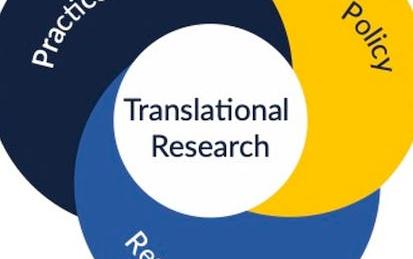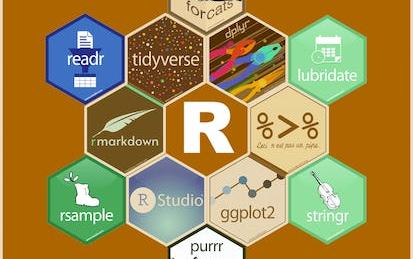

Our Courses

Excel Skills for Business
This specialization is intended for anyone who seeks to develop one of the most critical and fundamental digital skills today. Spreadsheet software remains one of the most ubiquitous pieces of software used in workplaces across the world. Learning to confidently operate this software means adding a highly valuable asset to your employability portfolio. In the United States alone, millions of job advertisements requiring Excel skills are posted every day. Research by Burning Glass Technologies and Capital One shows that digital skills lead to higher income and better employment opportunities.
-
Course by

-
 Self Paced
Self Paced
-
 English
English

Translational Science
An introduction to the field of Translational Science and its applications to improve patient and community health through the four stages of translational research. Translational science is the process of turning observations in the laboratory, clinic, and community into interventions that improve the health of individuals and populations. As the translational research enterprise — both in the United States and internationally — continues to expand, there is a growing need to increase the number of people pursuing training in the fields of clinical research and translational science.
-
Course by

-
 Self Paced
Self Paced
-
 English
English

Statistics with Python
This specialization is designed to teach learners beginning and intermediate concepts of statistical analysis using the Python programming language. Learners will learn where data come from, what types of data can be collected, study data design, data management, and how to effectively carry out data exploration and visualization. They will be able to utilize data for estimation and assessing theories, construct confidence intervals, interpret inferential results, and apply more advanced statistical modeling procedures.
-
Course by

-
 Self Paced
Self Paced
-
 English
English

Expressway to Data Science: R Programming and Tidyverse
R is one of the most popular languages used in the data science community and essential for any aspiring data scientist. This specialization will teach you how to do data science in R whether you are a beginning or a seasoned programmer. You will begin this three-course specialization by reviewing the fundamentals of programming in R and the importance of creating reproducible research.
-
Course by

-
 Self Paced
Self Paced
-
 English
English

People and Soft Skills for Professional and Personal Success
Knowledge of soft skills or people Skills are increasingly coming into focus and being recognized as critical for success - hence at IBM we call them "Success Skills", and categorize them as "Hot Skills". A research by Harvard University, Carnegie Foundation and Stanford Research Center has concluded that 85% of job success comes from having well developed soft skills and people skills,and only 15% of job success comes from Technical skills and knowledge (hard skills). This specialization is aimed at helping you develop these powerful people and soft skills and behaviors that include: creat
-
Course by

-
 Self Paced
Self Paced
-
 English
English

Academic English: Writing
The skills taught in this Specialization will empower you to succeed in any college-level course or professional field. You’ll learn to conduct rigorous academic research and to express your ideas clearly in an academic format. In the final Capstone Project, all the knowledge that you’ve gained over the span of these courses will culminate into an academic research paper on an issue of your choice.
-
Course by

-
 Self Paced
Self Paced
-
 English
English

Data Science: Foundations using R
Ask the right questions, manipulate data sets, and create visualizations to communicate results. This Specialization covers foundational data science tools and techniques, including getting, cleaning, and exploring data, programming in R, and conducting reproducible research. Learners who complete this specialization will be prepared to take the Data Science: Statistics and Machine Learning specialization, in which they build a data product using real-world data. The five courses in this specialization are the very same courses that make up the first half of the Data Science Specialization.
-
Course by

-
 Self Paced
Self Paced
-
 English
English

Multiple Regression Analysis in Public Health
Biostatistics is the application of statistical reasoning to the life sciences, and it's the key to unlocking the data gathered by researchers and the evidence presented in the scientific public health literature. In this course, you'll extend simple regression to the prediction of a single outcome of interest on the basis of multiple variables. Along the way, you'll be introduced to a variety of methods, and you'll practice interpreting data and performing calculations on real data from published studies.
-
Course by

-
 Self Paced
Self Paced
-
 14 hours
14 hours
-
 English
English

Ecological and Energy Transitions in Southern Countries
The Agence Française de Développement and the Ecole normale supérieure are launching the fourth edition of the MOOC “Ecological and Energy Transitions in Southern Countries".
-
Course by

-
 Self Paced
Self Paced
-
 29 hours
29 hours
-
 English
English

Data Analysis and Interpretation
Learn SAS or Python programming, expand your knowledge of analytical methods and applications, and conduct original research to inform complex decisions. The Data Analysis and Interpretation Specialization takes you from data novice to data expert in just four project-based courses. You will apply basic data science tools, including data management and visualization, modeling, and machine learning using your choice of either SAS or Python, including pandas and Scikit-learn. Throughout the Specialization, you will analyze a research question of your choice and summarize your insights.
-
Course by

-
 Self Paced
Self Paced
-
 English
English

JavaScript Interview Challenges
Your essential tech interview preparation pack! Practice solving problems and honing the skills you need to succeed in a frontend coding interview.
-
Course by

-
 Self Paced
Self Paced
-
 3 hours
3 hours
-
 English
English

AI Foundations for Everyone
Artificial Intelligence (AI) is no longer science fiction. It is rapidly permeating all industries and having a profound impact on virtually every aspect of our existence. Whether you are an executive, a leader, an industry professional, a researcher, or a student - understanding AI, its impact and transformative potential for your organization and our society is of paramount importance. This specialization is designed for those with little or no background in AI, whether you have technology background or not, and does not require any programming skills.
-
Course by

-
 Self Paced
Self Paced
-
 English
English

Sensory Science: The Senses
Humans are amazing sensors! This course will help you understand our sensing capabilities including taste, olfaction, tactile senses, vision, and audition. The course will explain at a high-level the anatomy, physiology, and chemistry of the senses and give you an appreciation of how senses are transmitted to, and experienced by, the brain. You’ll learn by experience to assess cases such as dysfunctions in olfaction or tactile temperature adaptation. Optional podcast conversations with experts in the field are included each week to provide additional insight on our senses and sensory research.
-
Course by

-
 Self Paced
Self Paced
-
 13 hours
13 hours
-
 English
English

Advanced Clinical Data Science
This course prepares you to deal with advanced clinical data science topics and techniques including temporal and research quality analysis.
-
Course by

-
 Self Paced
Self Paced
-
 4 hours
4 hours
-
 English
English

Intellectual Humility: Science
It’s clear that the world needs more intellectual humility. But how do we develop this virtue? And why do so many people still end up so arrogant? Do our own biases hold us back from becoming as intellectually humble as we could be—and are there some biases that actually make us more likely to be humble? Which cognitive dispositions and personality traits give people an edge at being more intellectually humble - and are they stable from birth, learned habits, or something in between?
-
Course by

-
 Self Paced
Self Paced
-
 21 hours
21 hours
-
 English
English

Futures Thinking
Do you want to think about the future with more creativity and optimism? Do you want to see what’s coming faster, so you can be better prepared for disruptions and more in control of your future? Do you want to get better at changing what’s possible today – in your company, your industry, your community, and in your own life? This Specialization will introduce you to the practice of futures thinking, as developed and applied for the past 50 years by the Institute for the Future, a Silicon-Valley-based research and learning group founded in 1968. You’ll master essential foresight techniques.
-
Course by

-
 Self Paced
Self Paced
-
 English
English

Specialty Topics: Biology Across Disciplines
In this course, we will explore the applicability and relationship of biology to the arts, business, and psychology. First, we’ll discuss art as a foundational practice to biology and how biology as a science can explain how we interact with the arts, in particular, our experiences making and listening to music. Next, we will discuss the business of biology and how research is funded and the process of clinical trials and human subjects research.
-
Course by

-
 Self Paced
Self Paced
-
 12 hours
12 hours
-
 English
English

Operational Research for Humanitarians
Evidence is central to good decision-making both in the humanitarian sector and beyond. Every day, a vast amount of evidence is generated that is relevant to humanitarian actors, much of it through research by academics and practitioners. This evidence can be incredibly valuable. It can help us better understand a situation and make humanitarian action more effective and accountable.
-
Course by

-
 Self Paced
Self Paced
-
 17 hours
17 hours
-
 English
English

Frozen in the Ice: Exploring the Arctic
Why would hundreds of scientists from around the world intentionally freeze a ship in Arctic sea ice for an entire year, braving subzero temperatures and months of polar darkness? This may sound like a fictional adventure movie plot, but from September 2019 through October 2020, the MOSAiC (Multidisciplinary drifting Observatory for the Study of Arctic Climate) Arctic research expedition did just this.
-
Course by

-
 Self Paced
Self Paced
-
 16 hours
16 hours
-
 English
English
SAS Visual Business Analytics
Using SAS Visual Analytics, you will learn to access and manipulate data, analyze data with a variety of interactive reports and graphics, and design and share dashboards to visualize your data. SAS Visual Analytics is a useful skill in a variety of careers, including business analyst, researcher, statistician, or data scientist. The Macquarie Business School at Macquarie University is proud to partner with global analytics leader SAS in offering SAS Certification as part of their Global MBA program.
-
Course by

-
 Self Paced
Self Paced
-
 English
English

How to Write and Publish a Scientific Paper (Project-Centered Course)
What you will achieve: In this project-based course, you will outline a complete scientific paper, choose an appropriate journal to which you'll submit the finished paper for publication, and prepare a checklist that will allow you to independently judge whether your paper is ready to submit. What you'll need to get started: This course is designed for students who have previous experience with academic research - you should be eager to adapt our writing and publishing advice to an existing personal project.
-
Course by

-
 Self Paced
Self Paced
-
 13 hours
13 hours
-
 English
English

Writing in English at University
Acquiring good academic research and writing skills early on is essential for your success both at university and in your professional life. This course aims: - to give you an understanding of the conventions of academic writing in English and to teach you the components and benefits of what is called process writing. - to help you to put together your own “toolbox” of academic writing skills, as well as to give you a chance to test out these tools and to reflect on your own development as a writer.
-
Course by

-
 Self Paced
Self Paced
-
 25 hours
25 hours
-
 English
English

User Interface Design
In this Specialization, you will learn industry-standard theory and methods for developing successful user interfaces (UIs). Upon completing this Specialization, you will have fluency with the user research, prototyping and evaluation techniques necessary for creating intuitive interfaces that facilitate good user experiences.
-
Course by

-
 Self Paced
Self Paced
-
 English
English

Total Data Quality
This specialization aims to explore the Total Data Quality framework in depth and provide learners with more information about the detailed evaluation of total data quality that needs to happen prior to data analysis. The goal is for learners to incorporate evaluations of data quality into their process as a critical component for all projects.
-
Course by

-
 Self Paced
Self Paced
-
 English
English

Patenting in Biotechnology
Far too often, researchers are misinformed about the role and the possibilities arising around patents and Intellectual Property Rights (IPR). In this course we will teach you what IPR are - with a special focus on patents. Also this course will look at the importance of patents in the world of biotechnology - and what you actually can patent. Should your research be protected? Can your research even be protected? There are a lot of misunderstandings about patents, so first step is to know what patents really are and how they work. Then we will introduce how and when to apply for them.
-
Course by

-
 Self Paced
Self Paced
-
 27 hours
27 hours
-
 English
English



